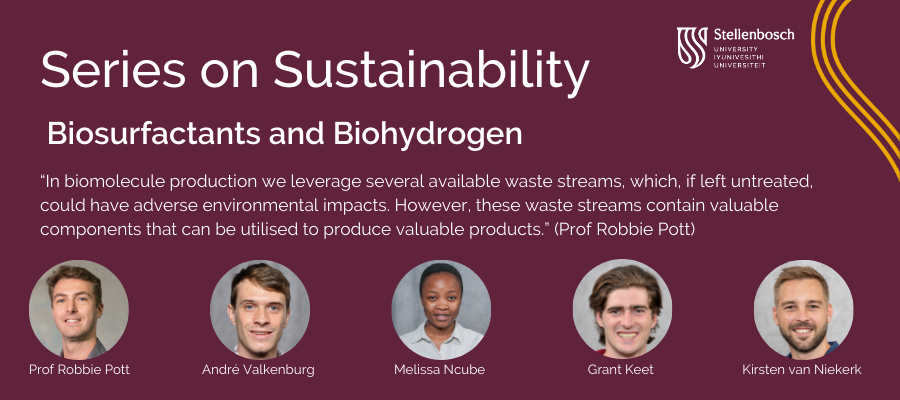
As part of its sustainability research efforts, the Department of Chemical Engineering has a focus on producing biomolecules to replace products derived from fossil fuels. “In biomolecule production,” explains Prof Robbie Pott, “we leverage several available waste streams, which, if left untreated, could have adverse environmental impacts. However, these waste streams contain valuable components that can be utilised to produce valuable products.”
A specific research initiative that is underway, centres on the production of biosurfactants, which see application in the personal care industry, as well as in food production. An example of a current project that has industrial application potential, is the production of an antifungal biomolecule, called a lipopeptide, which can be applied to fruit after they are harvested. This biosurfactant is safe to eat, but prevents the growth of mold on the fruit, improving its shelf life. According to Pott “this project has looked at both fundamental science, reactor design, separation science, and application on real fruit. We look forward to its implementation in the South African fruit industry.”
Further there is a strong research interest in producing high value lipids (as replacements for poly-unsaturated fatty acids from seafood sources) from waste sugar streams. These projects focus on optimising the production of these valuable biomolecules and demonstrating scalable production routes to enhance productivity and economic viability.
Regarding biohydrogen, hydrogen gas is generated through biological processes, typically involving microorganisms. This area holds particular interest for chemical engineers due to its potential as a clean and renewable energy source. “As such, the Bioprocessing Research Group (BPEG) within the Department has developed numerous technologies to support its production, such as novel photobioreactors, and methods for retaining biomass within reactors,” says Pott.



